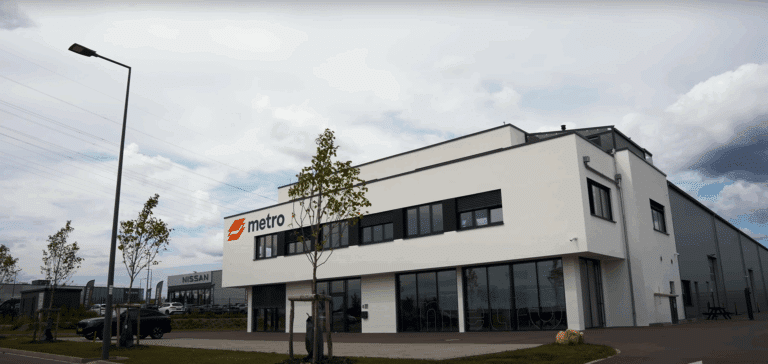A corporate project rooted in sustainability and heritage
Idea
As part of the establishment of the Metro site in the new Fridhaff business park, sustainability and environmental responsibility were central to the project from the initial planning stage.
Olivier Jacob, director and representative of the third generation the family, emphasises with conviction: “It is essential to give back to nature what our society takes from it.” True to the values passed down by his ancestors, he aims to embed the site in a sustainable, harmonious, and future-proof development. At Metro, the goal is to bring employees together around a shared corporate project that focuses both on improving quality of work life and respect for the natural environment.
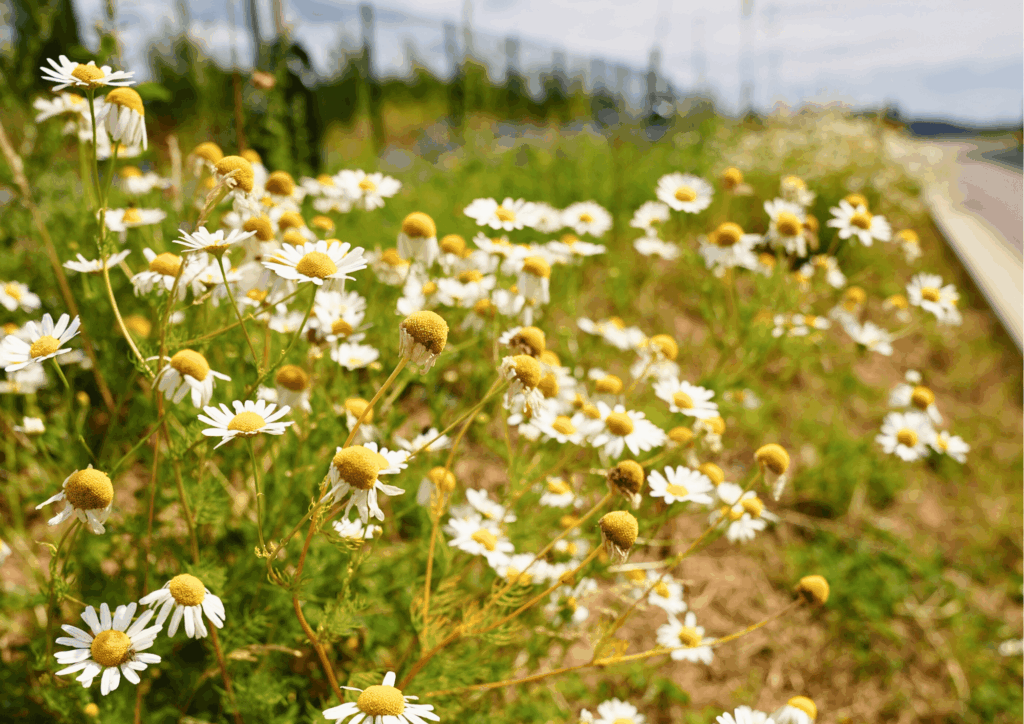
This commitment is tangibly reflected in the building’s architecture. Right at the entrance, a wall honours all those who have contributed to the company’s success, emphasising the continuity of the founding line and Metro’s collective spirit
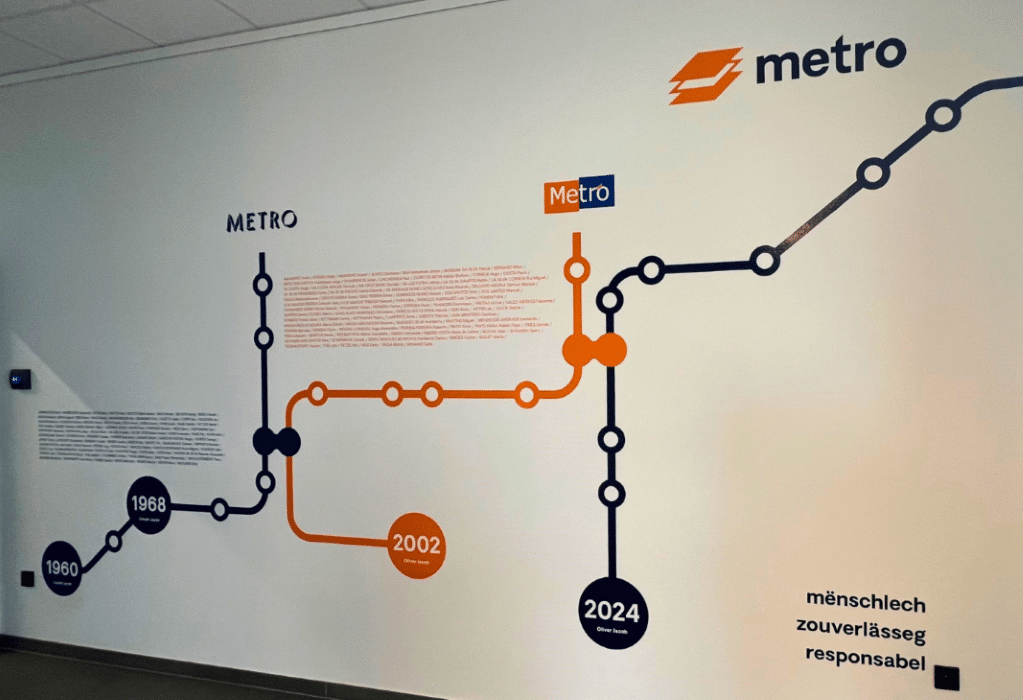
Design
Nature-focused landscaping
In addition to infrastructure supporting renewable energy and future electric mobility projects for employees, the idea of enhancing green spaces to create an active ecological ecosystem quickly took hold. The immediate proximity of forests and meadows offered a unique opportunity to develop a project in support of local biodiversity.
Collaborative design with beekeepers and landscape architects
The concept was developed in close collaboration with a landscape architect and a local beekeepers’ association. Several major ecological elements were integrated: planting regionally typical fruit trees, creating flower-rich meadows with high plant diversity, installing shelters for pollinating insects, and setting up beehives—all in harmony with the natural environment.
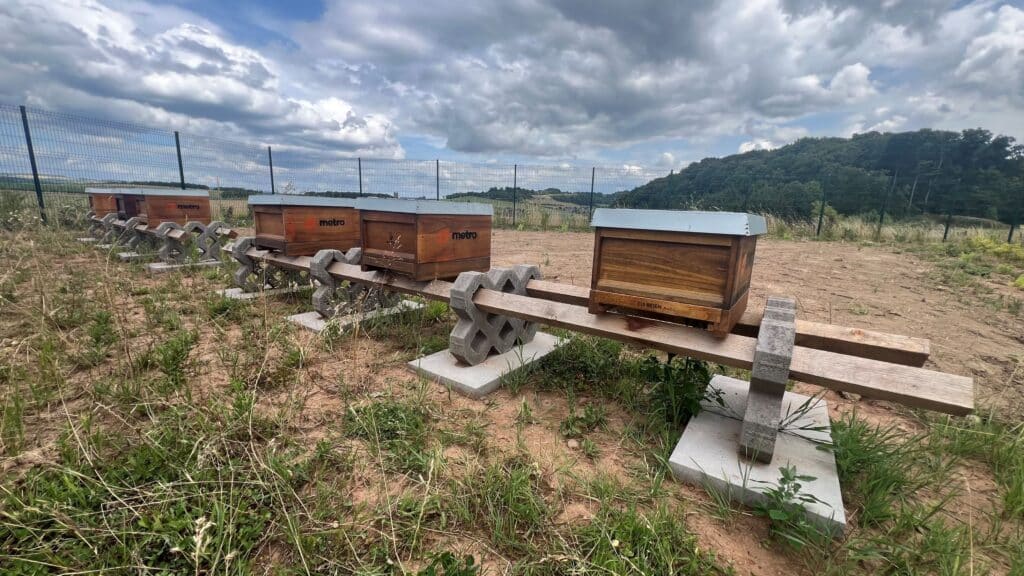
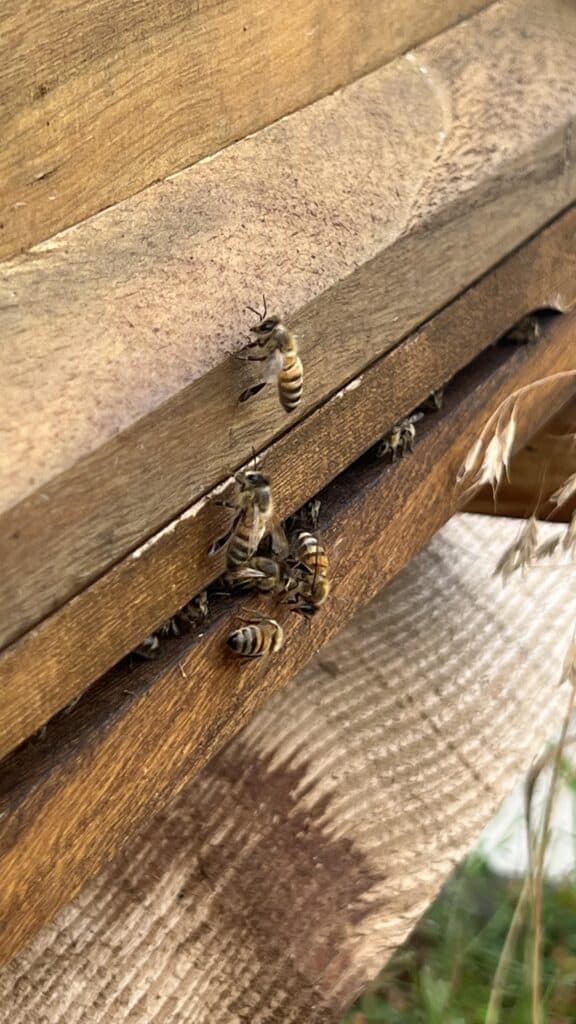
Particular attention was given to harmoniously integrating the project into the existing ecosystem to provide real added value for both fauna and flora. The cooperation agreement with the beekeepers’ association ensures the sustainable management of the hives and the honey harvest.
Implementation
Ecology in Its simplest form
From spring onwards, the fruit trees were planted and the wildflower meadows sown. The beehives were installed in consultation with apiarists to provide optimal conditions for the bees’ development.
Olivier Jacob highlights an additional advantage: “These installations require almost no maintenance, unlike traditional green spaces. Nature regulates itself and maintains its own balance.”
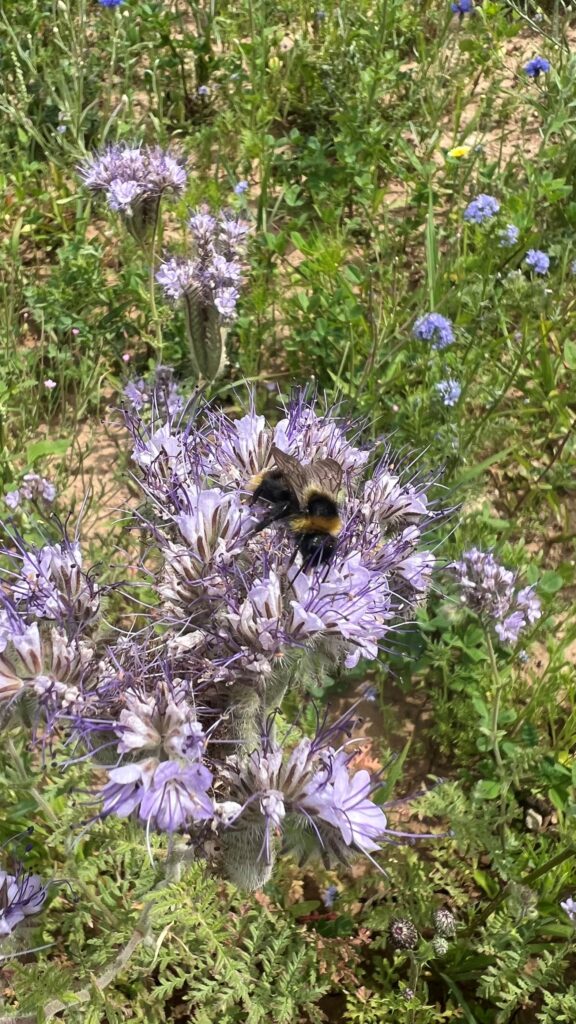
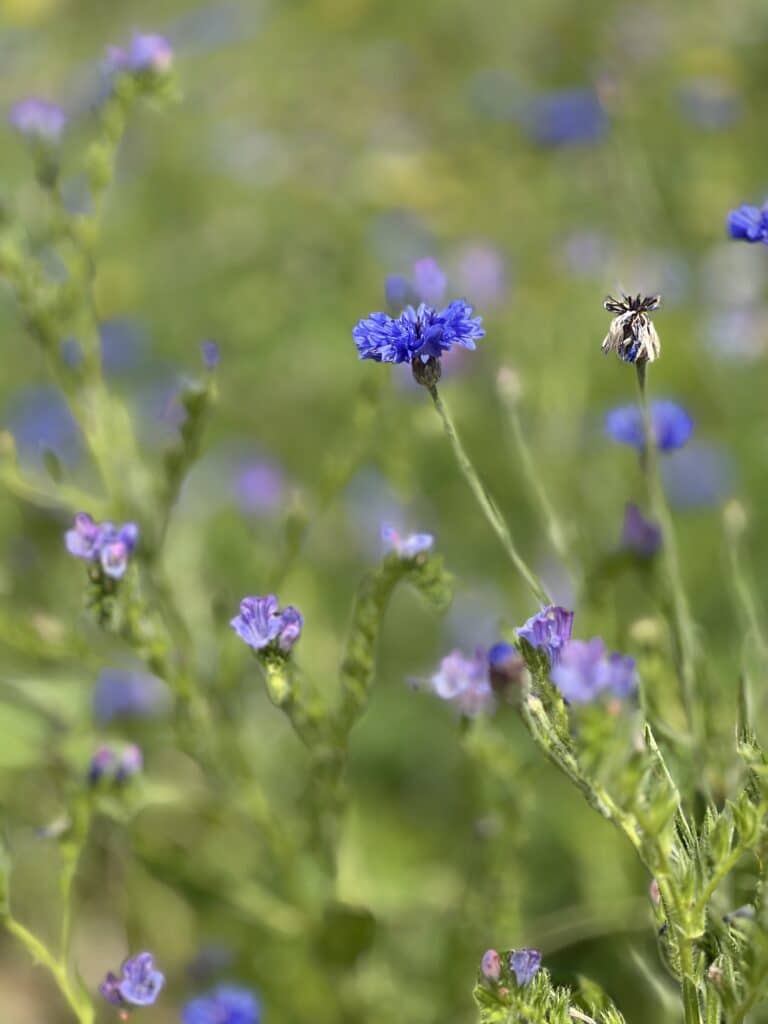
Results
Today, the Metro site in Fridhaff represents far more than a modern workplace: it embodies a model of respectful integration within a preserved natural setting. The flowering meadows, the buzzing of bees, and the self-sustaining ecosystem demonstrate a successful coexistence between economic activity and the protection of natural habitats.
